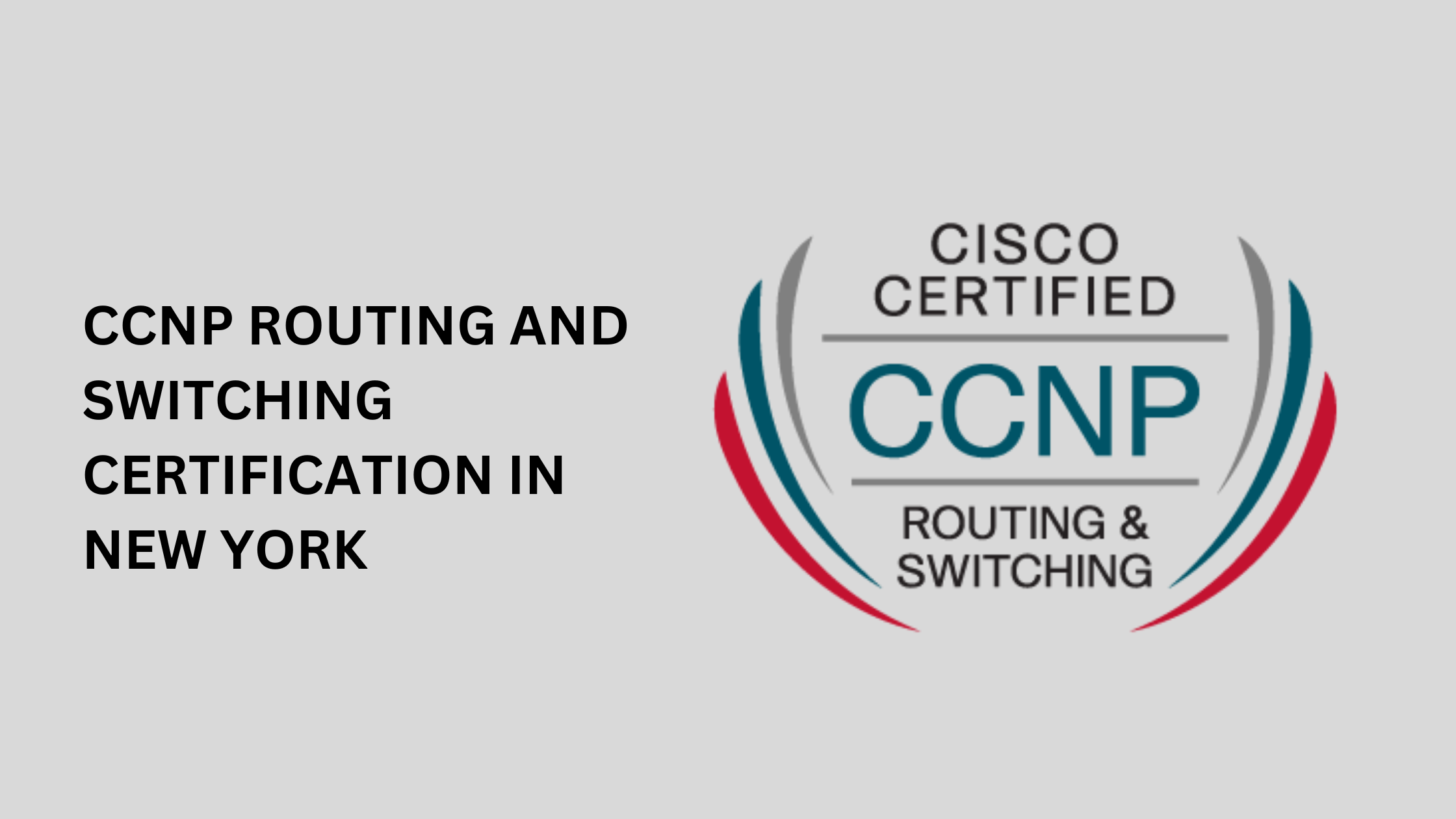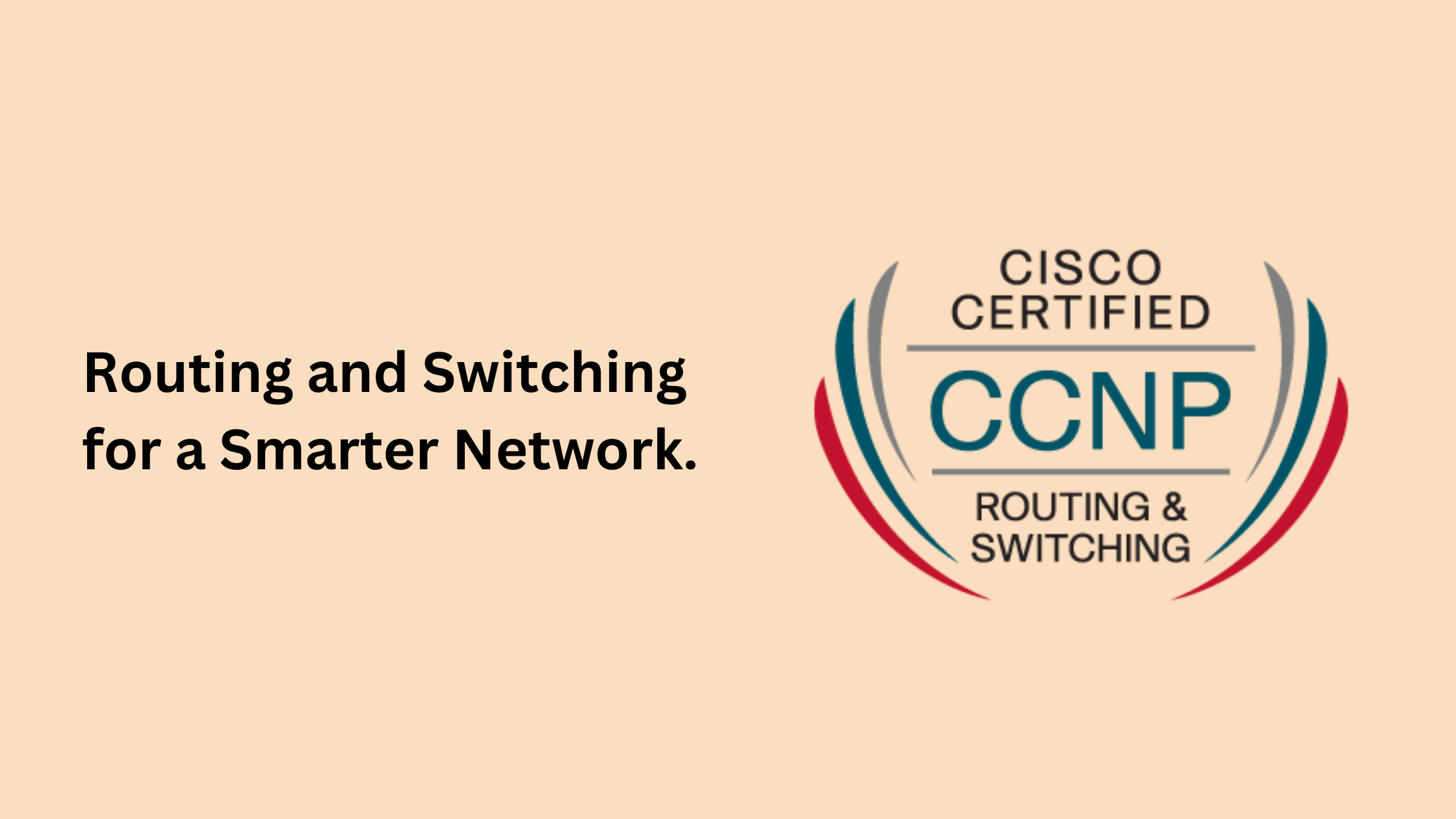Are you looking to advance your career in network engineering? If you're in New York and eager to enhance your networking skills, the CCNP Routing and Switching Certification in New York might be the perfect fit for you. This certification not only equips you with the necessary skills to manage and troubleshoot complex networks but also boosts your career prospects in the ever-evolving IT industry.
Why CCNP Routing and Switching Certification?
The CCNP Routing and Switching Certification is designed for network engineers who want to take their skills to the next level. It focuses on advanced knowledge of networking concepts, including routing protocols, switching mechanisms, and network troubleshooting. Here are some reasons why this certification is highly sought after:
- Advanced Knowledge: This certification delves deeper into networking concepts compared to the CCNA (Cisco Certified Network Associate) level. You'll gain a comprehensive understanding of routing protocols like OSPF, EIGRP, and BGP, as well as VLANs, STP, and more.
- Career Growth: Holding a CCNP certification can significantly enhance your career prospects. Employers value certified professionals who can handle complex networking tasks, making you a valuable asset to any organization.
- Industry Recognition: Cisco certifications are globally recognized and respected. A CCNP certification showcases your expertise and commitment to your profession.
- Hands-On Experience: The certification process involves practical labs and simulations, ensuring you gain real-world experience in configuring and troubleshooting networks.
The Path to CCNP Routing and Switching Certification
To earn the CCNP Routing and Switching Certification, you'll need to pass three exams:
- 300-101 ROUTE: This exam tests your knowledge of advanced routing and implementation, including IP routing, EIGRP, OSPF, BGP, and route redistribution.
- 300-115 SWITCH: This exam focuses on switching technologies, covering topics like VLANs, STP, and security features.
- 300-135 TSHOOT: This exam evaluates your ability to troubleshoot complex network issues using a variety of diagnostic tools and methodologies.
Preparing for the Certification
Preparation is key to successfully obtaining the CCNP Routing and Switching Certification. Here are some tips to help you get started:
- Study Materials: Utilize Cisco's official study guides, online courses, and practice exams to build a strong foundation. Cisco's Learning Network is an excellent resource for study materials and community support.
- Hands-On Practice: Setting up a home lab or using network simulation tools like GNS3 or Cisco Packet Tracer can provide valuable hands-on experience. Practical practice is crucial for understanding complex networking concepts.
- Join Study Groups: Engaging with study groups, both online and offline, can help you stay motivated and gain insights from fellow learners. Collaboration can enhance your understanding of challenging topics.
- Attend Training Courses: Enrolling in instructor-led training courses can provide structured learning and expert guidance. Many institutions in New York offer CCNP training programs to help you prepare effectively.
Additional Resources and Tools
To ensure you are well-prepared for the CCNP exams, consider utilizing additional resources and tools. There are numerous online forums and communities where you can ask questions and share knowledge. Websites like Reddit, Cisco Learning Network, and tech exams are great places to connect with other CCNP aspirants and professionals. Moreover, there are mobile apps available that offer practice questions, flashcards, and quizzes to help you study on the go. Apps like "CCNA/CCNP Exam Prep" and "Network+ Exam Prep" can be handy tools in your preparation arsenal.
Job Opportunities and Career Benefits
Earning a CCNP Routing and Switching Certification opens up a wide range of job opportunities. Certified professionals are in high demand in various industries, including telecommunications, finance, healthcare, and more. Some of the job roles you can pursue include:
- Network Engineer
- Network Administrator
- Network Consultant
- IT Manager
Certified individuals often enjoy higher salaries and better job security. According to industry reports, CCNP-certified professionals can earn significantly more than their non-certified counterparts. The certification serves as a testament to your expertise and dedication, making you a competitive candidate in the job market.
Staying Updated and Continuing Education
The world of networking is constantly evolving, with new technologies and protocols emerging regularly. As a CCNP-certified professional, it's essential to stay updated with the latest advancements in the field. Cisco offers various continuing education programs that allow you to maintain your certification and expand your knowledge. Participating in industry conferences, webinars, and workshops can also help you stay abreast of the latest trends and developments. Networking with other professionals in the industry can provide valuable insights and opportunities for career growth.
Conclusion
In conclusion, obtaining a CCNP Routing and Switching Certification in New York can be a game-changer for your networking career. This certification not only equips you with advanced networking skills but also enhances your career prospects and earning potential. Whether you're a seasoned network engineer or just starting your journey, the CCNP certification can help you achieve your professional goals. Take the leap and embark on your certification journey today to master your networking skills and stand out in the competitive IT industry.


